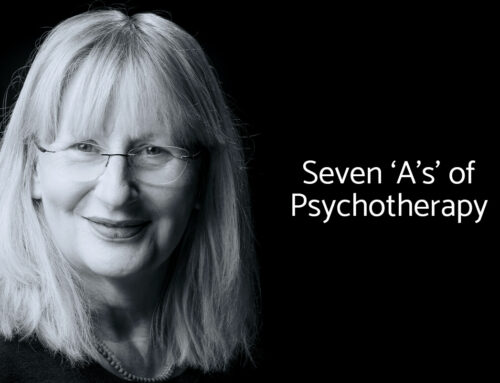
Am I experiencing a midlife crisis? What are the signs and symptoms of a midlife crisis, and how do I cope with it?
Click to see my e-Book on Finding Your Way Through Midlife
A psychotherapist explains how a midlife crisis can actually be a sign of health and wellbeing, and how you can leverage it to make hugely important steps forwards in your life and work. The key underlying issues of the midlife crisis period are to do with individuation, self actualisation, a sense of identity, and a re-evaluation of your sense of worth and value.
“Mid life crisis” is not a medical term, but refers to a confluence of co-occurring factors that arise at any time between the ages of 35-65, though the most frequent age of occurrence in men is said to be 43! It can last approximately 3-10 years for men, and 2-5 years for women, and in women can begin in the years leading up to the menopause.
The midlife crisis is often described as a set of behaviours, feelings and attitudes which arise in response to the realisation that you are becoming older. You start to worry about your appearance or the signs of aging, work hard to make yourself look younger, and engage in activities typically associated with being young and vigorous, such as extreme sports or motorcycling. On a biological level there is perhaps an impulse to reproduce before it’s too late, and thus seek out new partners.
Men and women typically demonstrate behaviours such as taking up new hobbies and interests, revisiting places or friends from your past, having cosmetic surgery, or having an affair with someone much younger than yourself.
Typically, the midlife crisis is portrayed in the media in a slightly mocking tone, and the underlying thoughts and feelings which precipitate these behaviours are not examined in a respectful way. The feelings that can arise at midlife are an important aspect of the adult maturational process. This process in itself has huge value and importance as it enables you to reach much greater levels of personal and professional fulfilment than you would if everything had stayed at a comfortable and familiar level.

These are the kinds of concerns that might be in the back of your mind:
- You become more aware of your mortality. This can take many forms, such as worrying that you will die before you have achieved anything significant, or without leaving a significant legacy; feeling that you have missed out on certain aspects of life and wanting to make up for lost time; or you lose your peace of mind because you focus on worries, such as about your health, relationships or finances.
- A sense of loss of purpose. By this time you may have achieved many goals, such as in your career, or your children are leaving home – but now what? You wonder what is the point, and you flounder for a while without a sense of direction, perhaps changing direction several times, experimenting and taking new risks. At the same time, you may feel disconnected from relationships that were formerly important.
- You become – temporarily – consumed with regrets about aspects of your past, which you reflect upon in a negative way
- You regress back to the way you were when you were younger, with more freedom and less responsibilities. You long for a youthfulness that you probably didn’t fully appreciate at the time.
- You feel a cocktail of complex feelings which can include resentment and anger about your current circumstances, frustration and a lack of enjoyment of your everyday life. There is a sense of stagnation.
- Feelings of boredom and intolerance can be focussed on a specific area such as sexuality, relationships, lack of a sense of adventure, or your career. For example you may lose all feelings of attraction for your partner, or you feel intense regret that you stayed in the same job or career for so long for the sake of stability or the pension, without developing other talents, abilities and aspects of yourself that are now calling for expression.
- A midlife crisis can also be precipitated by external factors such as loss, the passing of parents and other family members, transitions – such as the “empty nest syndrome” – being made redundant, or being diagnosed with a health condition. You may also realise you have less physical energy or strength than before, or get tired more easily, and find you can’t afford to waste time and energy on things that are less important.
- The haunting feeling that there is something you always really wanted to do but never let yourself (maybe you doubted if you were good enough to pull it off, or so-called real life intervened) becomes increasingly persistent.
- You know that you need and want to make a significant contribution and give of yourself, but you don’t know how to do this, or what you could offer. As part of this process you may want to re-assess what gives your life spiritual depth and meaning.
These concerns can give rise to some chaotic, confusing and upsetting emotions and behaviours that are hard to live with, whether in yourself or in your partner. When you were younger, you may have felt you had all the time in the world, yet the time between being young and becoming middle aged is astonishingly short. You no longer have the time to put things off, as the future is no longer such a far-off place. Your dreams will remain unrealised if you don’t begin to take action on them now. Likewise, you need to look after all aspects of your life as a responsible and mature adult, including your health and wellbeing, your relationships, your property and your finances, and you need to write or rewrite your will.
In fact when people come to me in my role as a therapist or a coach because they are struggling with any of these feelings and concerns, I view what they are going through in a positive light. There is no need for concern and panic! As in so many areas of personal, spiritual and professional growth, the keys to effective learning and change are hidden within the symptoms.
The key underlying issues of the midlife crisis period are to do with the need to grow beyond any limits you previously set for yourself. This means we need to shine a light on how much self actualisation you have attained so far and your core sense of identity, and also re-evaluate your sense of worth and value.
There is an important call to action at this time in your life, and if you follow it in a harmonious and balanced way, you are likely to experience joy, zest and enthusiasm as you become even happier with who you are.
If you address these issues, then in time everything else can fall into place in a new sense of order and balance. Individuation and self actualisation are both about the deep imperative inner need to be yourself, to grow, and to develop, and to realise more fully who you really are.
Your sense of identity may have been dependent, up until this point, on external roles that you held, or upon things that you did or achieved. Now this is no longer enough. Now your sense of self also has to be based upon a deeper sense of being. You also may realise that you have a low sense of self worth or that you do not feel valued for who you are and for your contributions.
Only you can be your self – a blend of your heritage, your DNA , your life experience, the places where you have lived and worked, the experiences and people you have known, and the special and amazing blend of personality attributes, history and sense of self that make you uniquely who you are. The purpose of the mid-life struggle is to integrate more of who you are into your life, re-align yourself with values that work for you, find new ways to make conscious use of the life experience you have gained, and share the benefit of this with others.
In order to do this you will need to recapitulate and reflect upon aspects of your past life experience; work on your less developed aspects, catch up with unresolved or even buried emotions, and bring yourself up to date with who you want to be and how you want your life to look for the next very important phase. This may sound difficult, but with skilled help and support, you can move through these themes much more quickly.

A therapeutic approach will help you connect up with material from your past and how this is still affecting you, as in order to move forwards you need to understand more about where you have come from and how this has shaped and affected you through and through. You may need to process and evaluate relationships, events, traumas and losses that have happened along the way. You will learn new skills of self-reflection, re-establish your values, and perhaps re-evaluate how you can make your relationships – whether with family, partner, friends or colleagues – more fulfilling.
A therapeutic coaching approach will support you to evaluate where you are currently, and where you want to be, in a forward looking way. This is ideal when you feel ready for change, and you do not have a big backlog of unexplored feelings and life issues, but you feel your life is still lacking in some important dimensions. You feel strongly motivated to make positive changes in your life, and can work through blocks and resistances as they arise as they are not major road blocks.
Life or career focused coaching will work for you if you have reached the point of being able to define your new goals, based on values that reflect who you are now and who you want to be. Then the coach can support you in realising more of your potential and achieving your best by helping you to be systematic and consistent in following through.
Wherever you find yourself at midlife, it’s so important to seek a deeper sense of fulfilment, self realisation and self expression in ways that feel whole and balanced.




